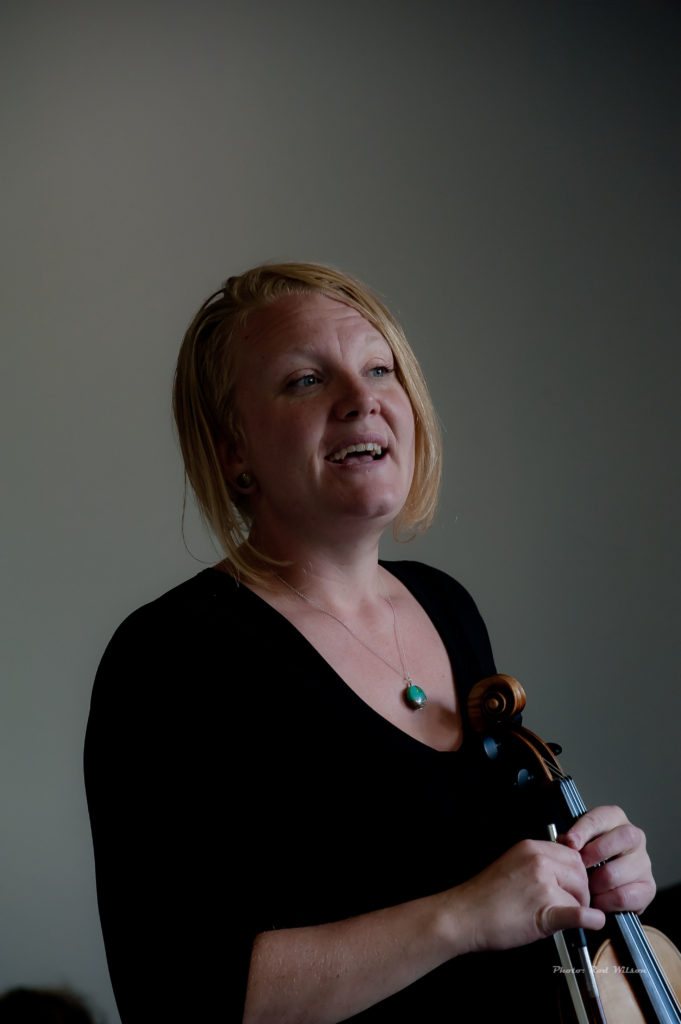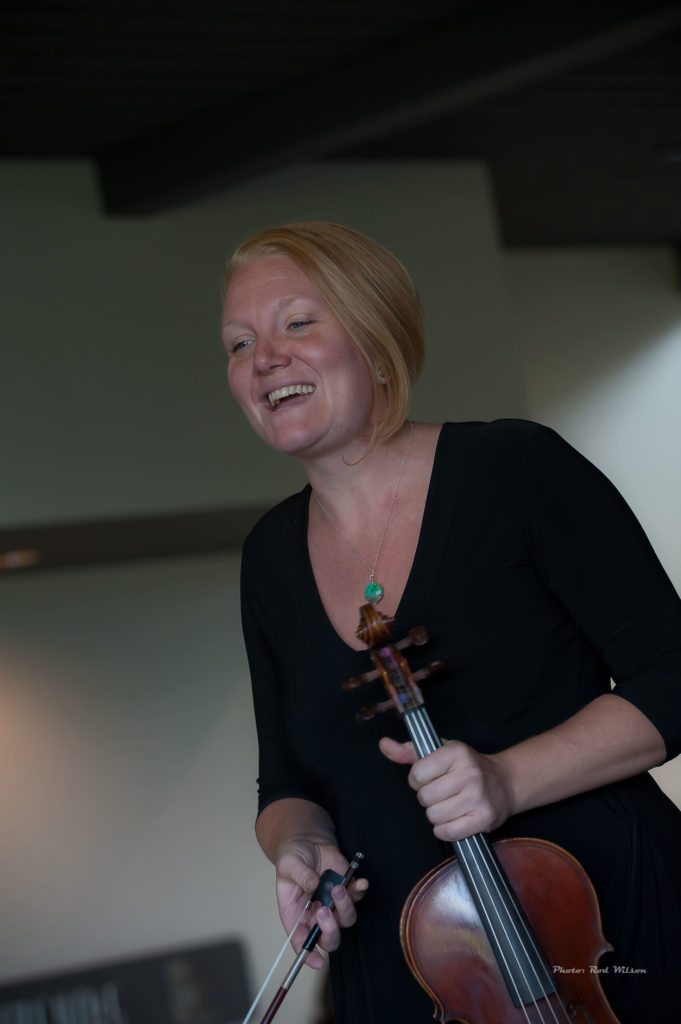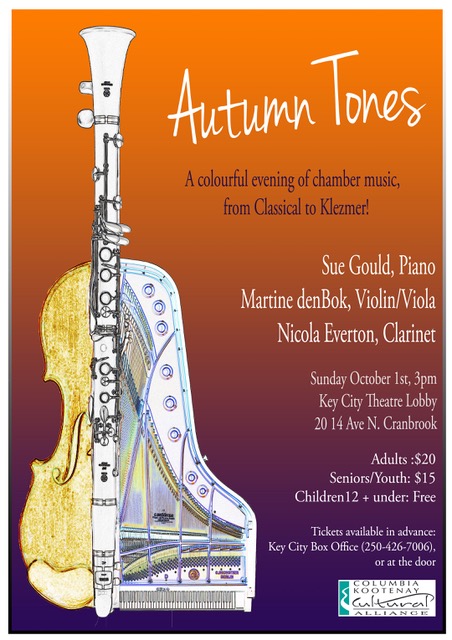
AUTUMN TONES is a chamber music ensemble of local musicians with Nicola Everton on clarinet, Sue Gold on piano and Martine denBok on violin and viola. All three musicians are associated with the Symphony of the Kootenays as either members of the orchestra or as visiting soloists. Nicola and Sue have performed many times in the area, along with cellist Jeff Faragher, in the classical chamber music ensemble THE SELKIRK TRIO. In both the Selkirk Trio and Autumn Tones the intent seems to be to explore the modern edge of classical music as well as excursions into the realms of the traditional classical repertoire, Jazz, Latin, Klezmer or anything else that strikes their fancy. On this beautiful fall afternoon in the lobby of the Key City Theatre that is the musical realms they set out to explore.
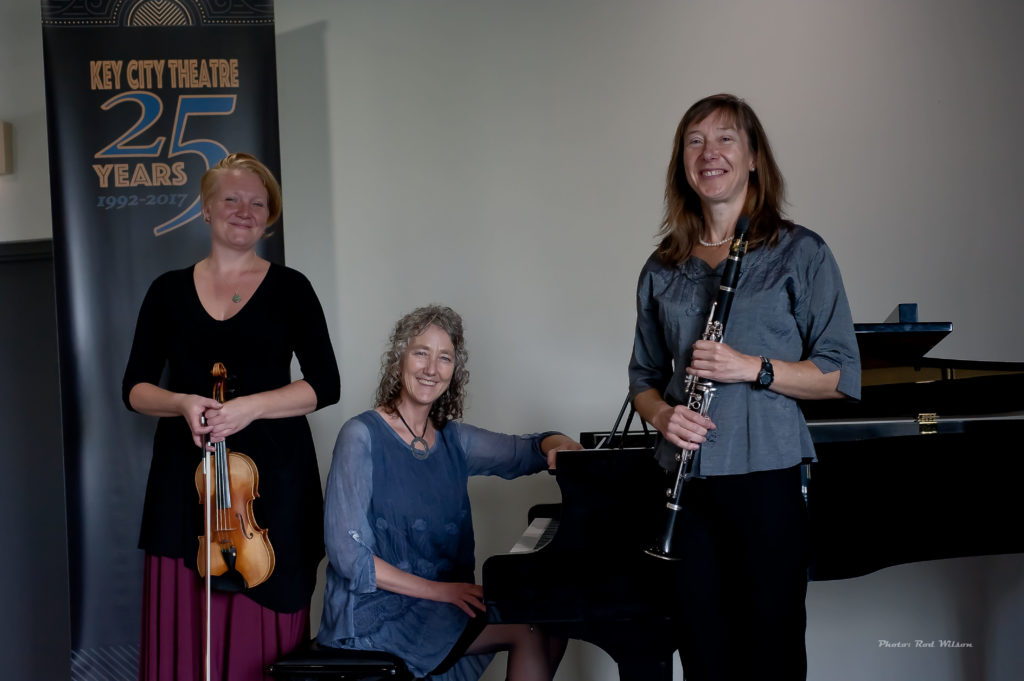
They kicked off the afternoon with Darius Milhaud’s Trio for Clarinet, Violin and Piano. For me it was a moment of unbelievable synchronicity. On the drive to the theater I had been listening to some Brazilian Choro on the car CD player (yes, some of us still listen to CDs). On this beautiful fall afternoon what could be more appropriate than bouncing down the highway to the warm rhythms of Brazilian Choro. From the opening bars of the Milhaud piece the choro music I had just been listening to immediately came to mind and I began mentally adding in the percussive sounds of the Brazilian Pandeiro to the trio on stage.The Pandeiro is a Brazilian tambourine that is the heart beat of samba. That mental notion is completely understandable when you consider Darius Milhaud’s musical associations with Jazz and Brazilian music. He was one of the most prolific modern classical composers of the last century and was influenced by the sounds of Jazz and Brazilian music. While it is not his only claim to fame he was a musical mentor to the Jazz musician Dave Brubeck. So much so that Brubeck named his son Darius after the composer. One of Milhaud’s former students was the popular songwriter Burt Baccharach. Milhaud is reported to have told Bacharach, “Don’t be afraid of writing something people can remember and whistle. Don’t ever feel discomfited by a melody.”. This Trio for Clarinet, Violin and Piano lived up to that standard with lots of melody, rhythm and musical interplay between the instruments.
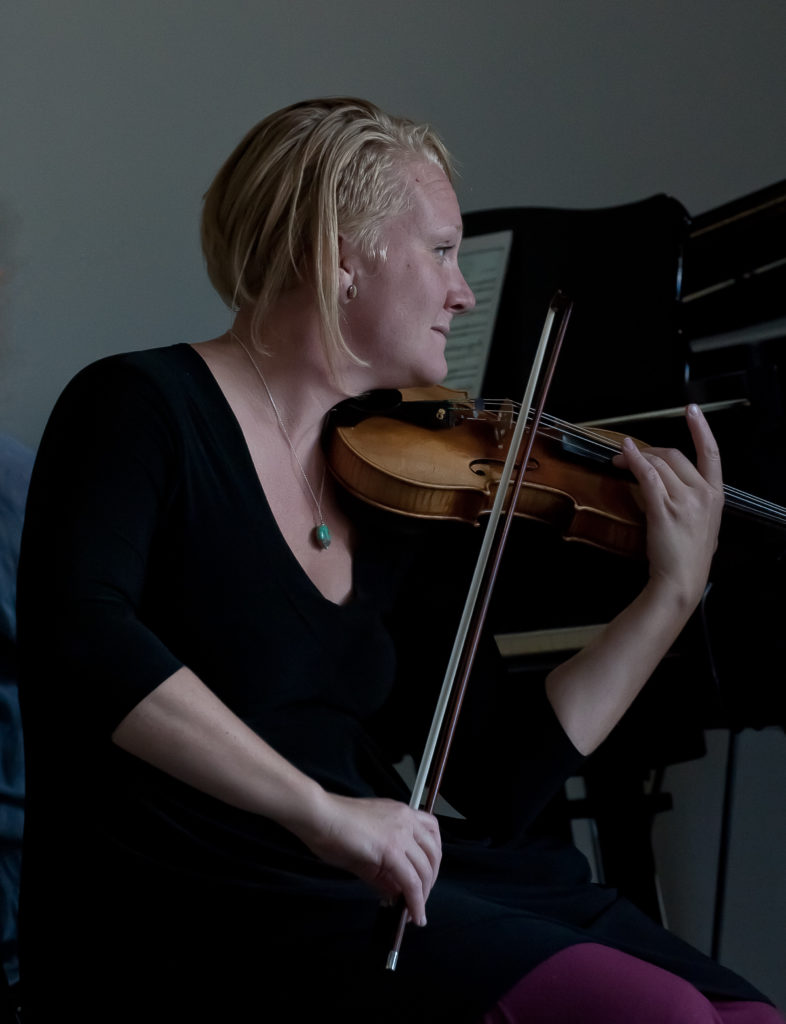
Popularity in music usually means world tours and mega arena performances. Modern classical composers do not rate that sort of popularity or attention and yet, in the realm of classical music, Arvo Part is probably the most popular modern classical composer of the last few years. This Estonian composer of classical and religious music uses self invented compositional techniques in the minimalist style (think Phillip Glass with darker Eastern European overtones). For this afternoon’s performance the trio selected Part’s popular Spiegel im Spiegel written in 1978. “Spiegel im Spiegel” in German literally can mean both “mirror in the mirror” as well as “mirrors in the mirror”, referring to an infinity mirror which produces an infinity of images reflected by parallel plane mirrors: the tonic triads in the composition are endlessly repeated with small variations as if reflected back and forth. The piece was originally written for a single piano and violin. Other versions exist with cello or viola, double bass, clarinet, trombone, flute etc. This performance is for piano, clarinet and violin and is in F major in 6/4 time.
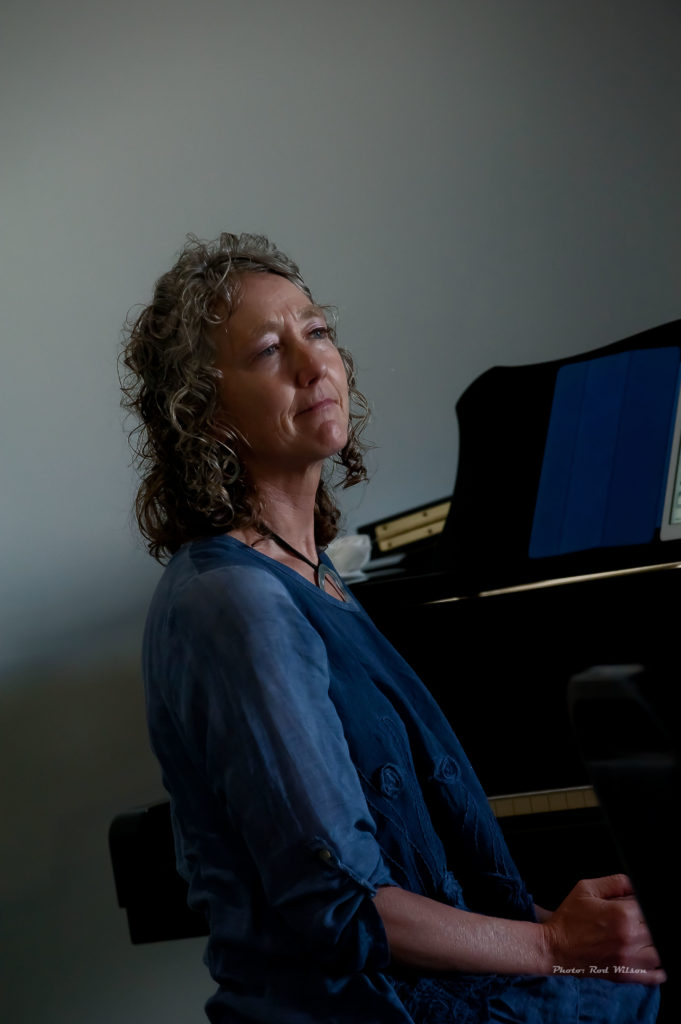
Aram Il’yich Khachaturian (1903 – 1978) was a Soviet Armenian composer and conductor and is best known for his composition the Sabre Dance. He was the most renowned Armenian composer of the 20th century and is considered one of Soviet Russia’s leading composer. While following the established musical traditions of Russia, he broadly used Armenia and, to a lesser extent, Caucasian, Eastern & Central European, and Middle Eastern peoples’ folk music in his works. His style is “characterized by colorful harmonies, captivating rhythms, virtuosity, improvisations, and sensuous melodies”. The trio performed movements 1 and 3 from his Trio for Clarinet, Violin and Piano.
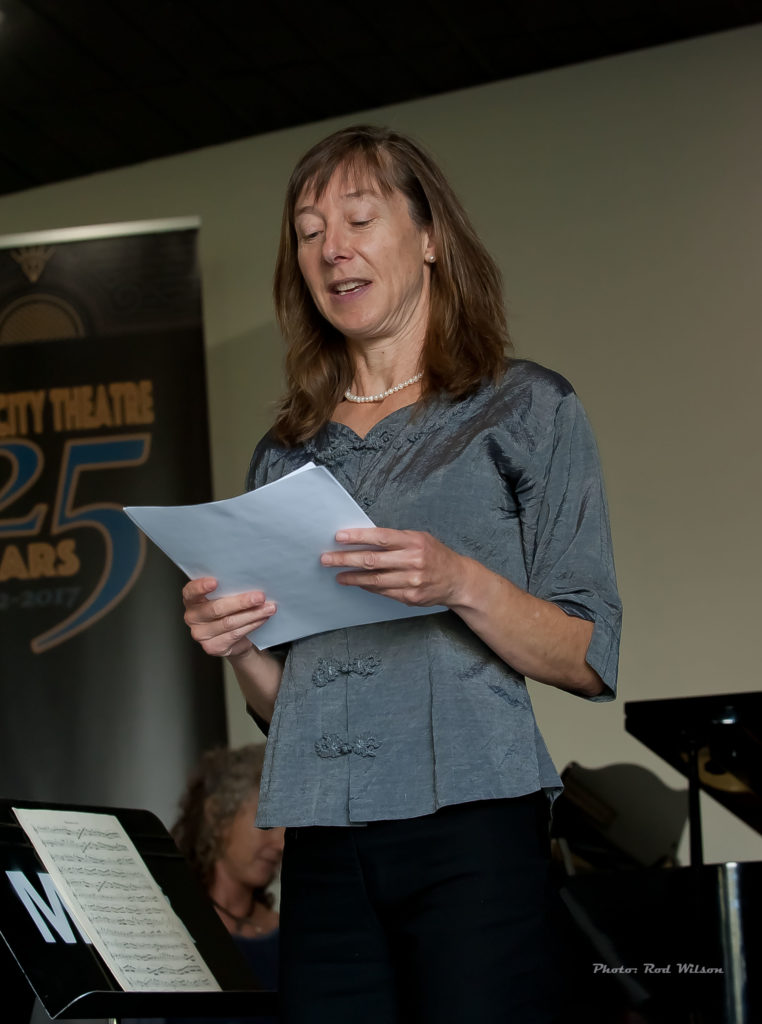
In the vernacular the clarinet has been referred to as a liquorice stick. Maybe it is the colour of the instrument but I like to think it is because of the liquid smoothness of the music of Mozart when played on the clarinet. Autumn Tones pulled us away from the “edginess” of contemporary classical music into the smooth mainstream of Wolfgang Amadeus Mozart’s Kegelstatt Trio, K498 in E flat Major for piano, clarinet and viola. No composer before Mozart had written for this combination of instruments. The origin of the nickname Kegelstatt is interesting. The German word Kegelstatt means “a place where skittles are played,” akin to a bowling alley. Mozart is reputed to have written this while playing skittles. At the time the clarinet was a relatively new instrument and in the first performance the then vituoso Anton Stadler played clarinet, Mozart the viola, and Franziska von Jacquin the piano. This trio composition, along with his Clarinet Quintet and Clarinet concerto helped increase the instrument’s popularity. The piece is in three movements: Andante / Menuetto / Rondeaux: Allegretto
For the final piece the trio took us back to the edge for a little slice of Yiddish Klezmer in the tune Moldavanke. This style of music is mostly associated with Eastern European Jewish traditions and is performed in a lively bouncing style with overtones of Jewish humor and melancholy. Nicola has fallen in love with the style and wants to put together a Klezmer band.
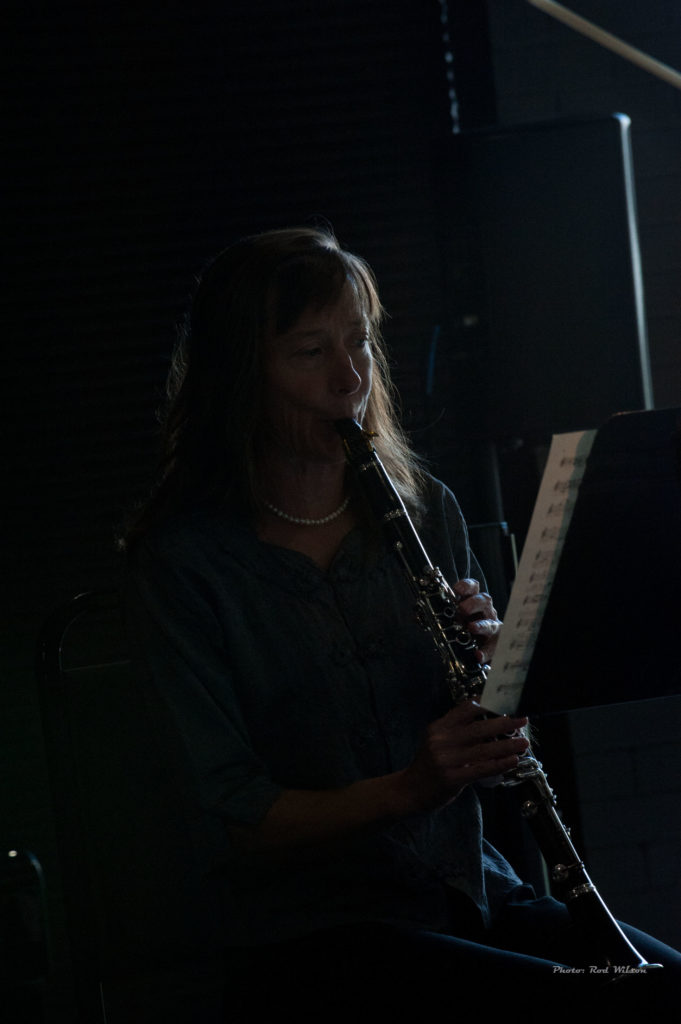
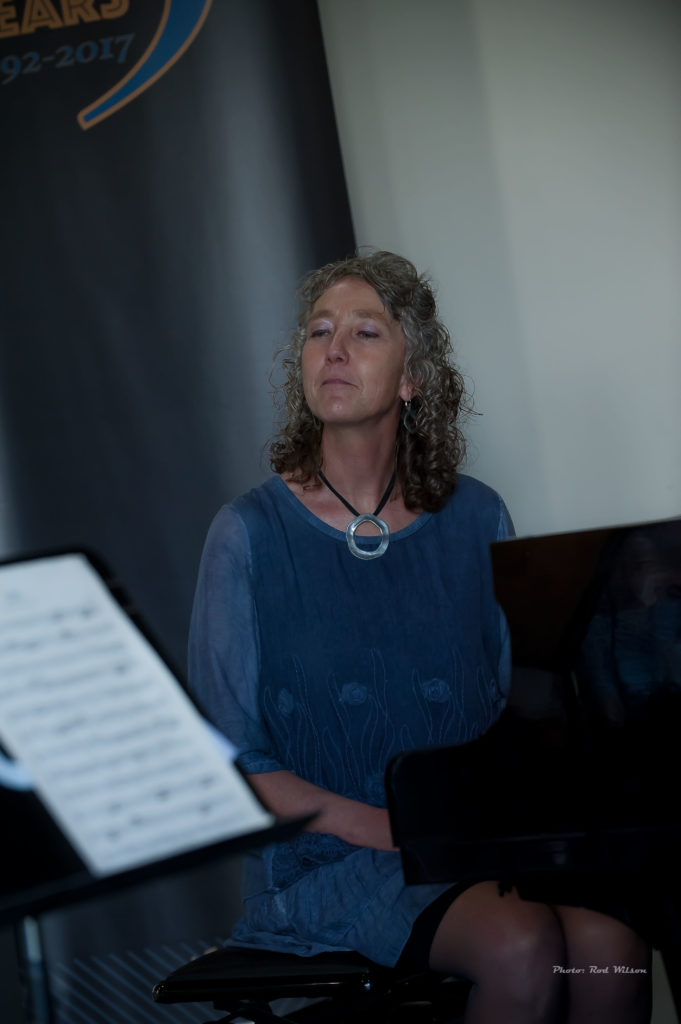
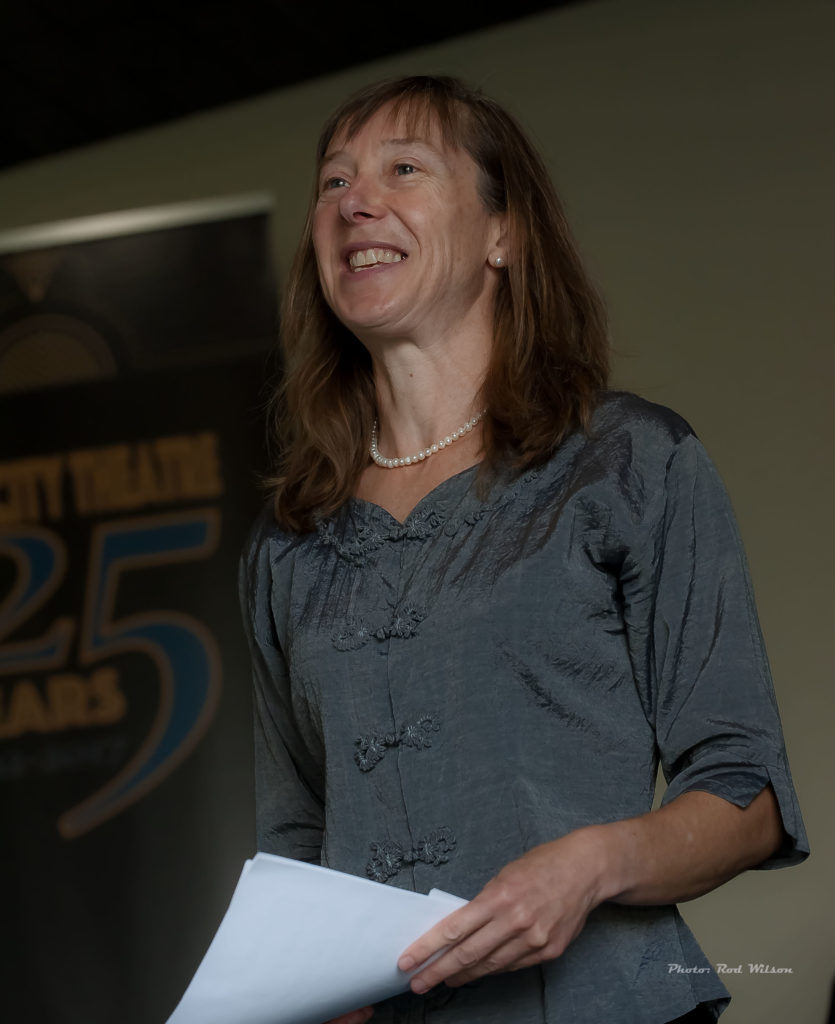
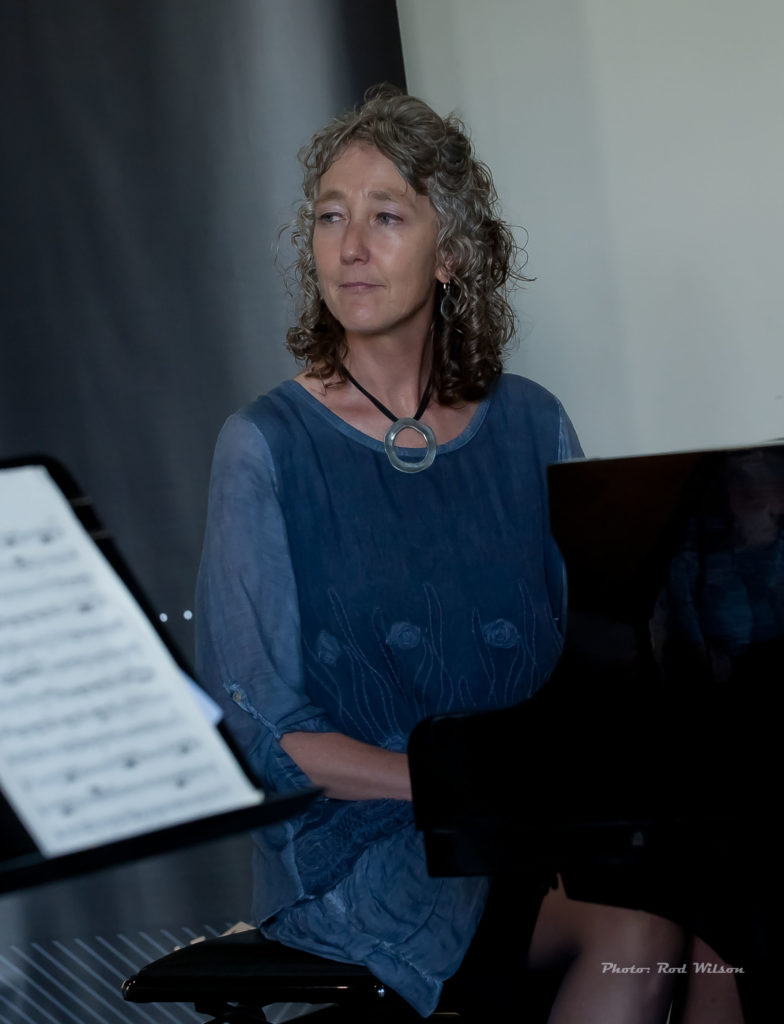
Autumn Tones would like to thank The Kootenay Cultural Alliance and sponsors that have made this tour possible.
@@@@@@@@@@@@@@
A BONUS: By it’s very nature music is of the moment. As soon as the musical note leaps into the air it is in the process of dying and until the invention of sound recordings that was it. All we had left were memories. The recording industry has changed all that and performances can become more permanent if they are recorded. Unfortunately not all performances make it “onto wax”. This concert by Autumn Tones is now but a pleasant memory. Perhaps some day Autumn Tones and The Selkirk Trio can be persuaded to record those musical gems that over recent years they have cast to the winds. To make up for that here is a bonus for you from YouTube –
Darius Milhaud: Suite op.157b for Clarinet, Violin and Piano – Cologne Chamber Soloists
ENJOY
@@@@@@@@@@@@@@

